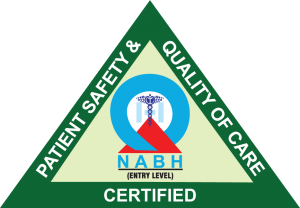BLOG – DIALYSIS
- Home
- Blog
- Dialysis
- May 05, 2023
Dialysis is a life-saving treatment for people with kidney disease, but unfortunately, there are several myths and misconceptions about it that can lead to confusion and anxiety. Here are some common myths about dialysis:
Myth: Dialysis cures kidney disease.
Fact: Dialysis does not cure kidney disease. It is a treatment that helps to remove waste and excess fluid from the body when the kidneys are no longer able to do so on their own.
Myth: Dialysis is painful.
Fact: Dialysis is generally not painful. Some patients may experience discomfort during the insertion of needles or during the treatment process, but this can usually be managed with medication or adjustments to the treatment.
Myth: Dialysis is the end of a normal life.
Fact: While dialysis can be a significant change to a person’s lifestyle, it does not have to mean the end of a normal life. With proper management and support, many dialysis patients are able to continue working, traveling, and enjoying hobbies and activities.
Myth: Dialysis is only for older people.
Fact: Kidney disease can affect people of all ages, and dialysis may be necessary for younger patients as well as older ones.
Myth: Dialysis is only needed when symptoms are severe.
Fact: Dialysis may be necessary even if a patient is not experiencing severe symptoms. The decision to start dialysis is based on several factors, including the level of kidney function and the presence of complications.
Myth: Dialysis is a death sentence.
Fact: Dialysis can help to extend and improve the quality of life for many people with kidney disease. While it is a serious medical condition, it does not have to be a death sentence.
It is important to talk to a healthcare provider about any concerns or questions you may have about dialysis. They can help to provide accurate information and address any misconceptions or myths that may be causing anxiety or confusion.
Dialysis is a life-saving treatment for people with kidney disease. Here are some important truths about dialysis:
Truth: Dialysis is a highly effective treatment for kidney disease.
Fact: Dialysis is a highly effective treatment that helps to remove waste and excess fluid from the body when the kidneys are no longer able to do so on their own. It can help to extend and improve the quality of life for many people with kidney disease.
Truth: Dialysis is a complex and specialized treatment.
Fact: Dialysis is a complex treatment that requires specialized equipment and highly trained healthcare professionals to administer. It is a medical treatment that requires careful monitoring and management to ensure its effectiveness and safety.
Truth: Dialysis can be customized to meet individual needs.
Fact: There are different types of dialysis available, including hemodialysis and peritoneal dialysis, and each can be customized to meet individual needs and preferences. Patients can work with their healthcare team to determine the best type of dialysis for them.
Truth: Dialysis requires a significant time commitment.
Fact: Dialysis treatments can take several hours per session, and patients may need to undergo treatment several times per week. This can be a significant time commitment that can impact a person’s lifestyle.
Truth: Dialysis can cause side effects and complications.
Fact: Like any medical treatment, dialysis can cause side effects and complications, such as low blood pressure, infection, and blood clots. However, these risks can be minimized with proper management and monitoring.
Truth: Dialysis requires a multidisciplinary approach to care.
Fact: Dialysis patients require a team of healthcare professionals, including doctors, nurses, dietitians, and social workers, to manage their care and provide support. This multidisciplinary approach helps to ensure that all aspects of a patient’s health and well-being are addressed.

